For Malte Bruns much has changed
In 2015 Malte Bruns was the top age grouper in Kona while competing in M18-24. A big future in triathlon was expected from this fast young German, but injuries have thrown him a massive curve ball.
Slowtwitch: Thank you again for giving us your time.
Malte Bruns: You are more than welcome!
ST: We last spoke to you in late October 2015 after you grabbed the overall age group title in Kona. Does that seem forever ago to you now?
Malte: It certainly seems like that. Lots of stuff happened since then. I'd be almost 2 age groups further up by now!
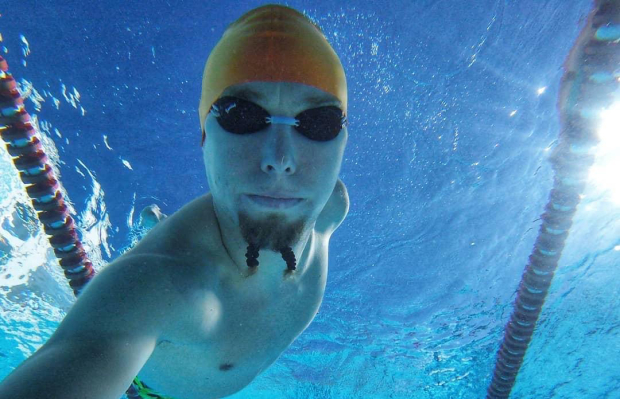
ST: Since you were in M18-24 age group then, much was expected from you in terms of your potential. How much pressure did you put on yourself in the last few years?
Malte: I'm not really one to put pressure on myself. Of course, I always tried and try to do my best and have fun along the way.
ST: Hopefully you are still trying to have fun.
Malte: I am for sure! I always try to do some random, slightly stupid stuff. This Christmas I tried the Strava festive 500 for the first time in earnest and it was great fun!
ST: I believe you got an Elite start pass the following year. How many races did you do as a Pro and what was your best result?
Malte: My first pro race was the inaugural race of Challenge Venice where I finished 3rd – which was also my best pro result. I did the Chiemsee Triathlon a couple of times, IM Lanzarote, Challenge Regensburg & Almere. One highlight for sure was the Triathlon Alpe d'Huez!
ST: Can you explain why you mentioned the Triathlon Alpe D’Huez as a highlight?
Malte: The whole event and the race course are just great. The French really do put in a lot of work. They had helicopters shooting race coverage. Lots of people alongside the roads. Great hospitality. And simply the famous climb up to Alpe d'Huez! Also, we made a family holiday out of it, which added to the whole experience.
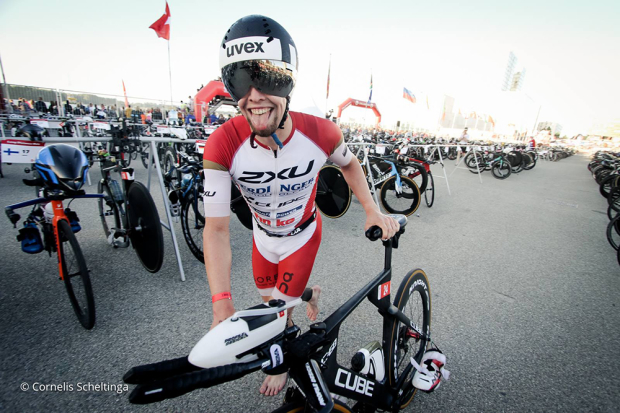
ST: You had no coach back in 2015 and were known for monster training sessions. Did you adjust anything along those lines in the time after that win? As in a new coach or even more training?
Malte: I started training with Sisu training in 2016. So a lot more, or rather, any speed work at all, was implemented. I started running lots of 800's, which was fun – even though terrifying at times, when 24 of them popped up on the training plan. I still managed to incorporate some crazy stuff now and then.
ST: Crazy how?
Malte: Mostly long, fun bike rides. Or a triple bike day: A fasted session before breakfast, then some hard hill reps, and after lunch a 3-hour ride with some sprint efforts. That was a great one!
ST: In January 2018 you underwent an Achilles tendon surgery. What lead to this and how long was that lingering?
Malte: I started having trouble when I first arrived in Hawaii back in 2015. As it often goes with the Achilles, I basically had trouble with it since then, even though with varying severity. I tried lots of things, but nothing really changed anything for the better. In 2018 the doctor recommended surgery, as about 20% of the tendon was destroyed.
ST: What was seen as the reason for the damage?
Malte: Nobody really had a good explanation. It could be due to training overload – but for the first time I experienced these troubles was after flying out to Hawaii and resting there for 4-5 days before putting on the running shoes – and then my Achilles right and left was causing me trouble. So I don't really think it is overload. But again, nobody has any sensible idea.
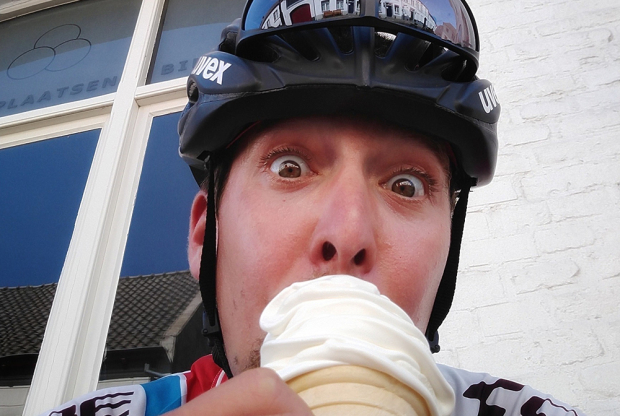
ST: What did you think would be the result of that operation, and what were the risks as far as you knew?
Malte: It was supposed to get me back on my feet running as in my hay day. But that never happened, and to this day no doctor could tell me what went wrong, or still is amiss. One of the risks when work is done on the Achilles is a rupture, but luckily that didn't happen.
ST: What about running after the operation?
Malte: I was never able to run pain free after that. I tried it again and again. But I could never get back into proper run training.
ST: Is there anything else possible to improve the situation?
Malte: Sadly, no. The tissue on the MRI looks good, but the situation doesn't.
ST: You posted on FB that 2020 was the first year for you without that Elite pass. Was that a hard call?
Malte: It certainly was. I finished my engineering degree in the fall of 2018 and decided to give the pro career another year to see if the situation would improve without the stress of studying – which it didn't. Not applying for the pro license also meant putting this whole triathlon pro lifestyle to the grave. It was really depressing for me.
ST: I think a career in engineering pays much better, so there is that.
Malte: I think you'd have to be in the solid top 10 / top 20 of the world to really make a good living off of Triathlon. Also, the pay in engineering is much more certain, than living off of price money.
ST: Any luck with the job interviews or has Covid19 put an end to that for now?
Malte: I had an interview for a dream job 3 weeks ago – but sadly they stopped their application process, as almost all companies come back now with a hiring freeze due to Corona.
ST: And how has Covid19 changed your exercise life?
Malte: Covid-19 had a big impact there. I was just 3 days into a 2-week training camp in Mallorca, when the Spanish lock down hit the island. So I spent the remainder of the holiday reading on the balcony and doing some core workouts. Going outside was just allowed to go shopping. Back here in Germany of course all pools and gyms are closed. But it's still possible to ride my bike outside, so that's a big plus. Still, I try to be extra careful these days – descending slower, looking out for traffic and debris on the road even more. And of course, riding solo. #SocialDistancing
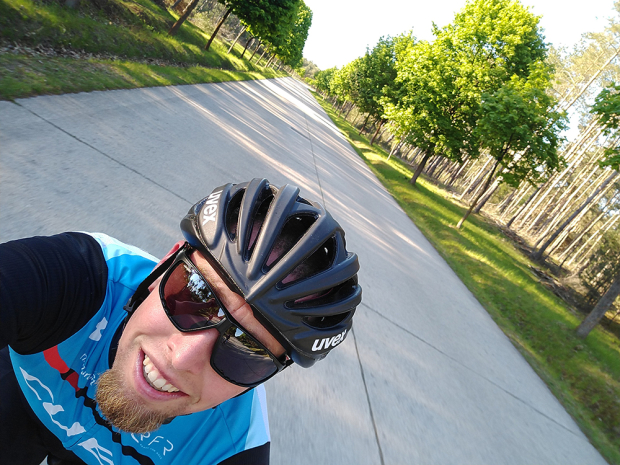
ST: I think you are mostly cycling these days. What about swimming when the pools are open?
Malte: I joined the local swimming club some years ago and swim with the masters. I still go some mornings and also got a chance to swim with the freaking fast kids during their holiday training camps here.
ST: Do you miss competing in triathlon?
Malte: I really do. I still did the local triathlon league. The camaraderie and the banter is amazing. But it's just not the same, when you know you aren't competitive anymore, especially after racing at that level before. Going into a race, knowing you'll be extremely slow and hurting on the run, when it was my forte before, is just disheartening.
ST: Truly a bummer. But now to a different topic, the news recently came out that the current Ironman age group champion Chris Dels from Germany got a 14-month doping ban and has to give up that title for a prohibited infusion. Based on social media posts many Germans seem to be seeing it as a “fairly innocent mistake.” How much do you think an athlete of that experience level ought to know?
Malte: I have to admit I was never all that interested in following the triathlon scene. But I did see it on Facebook. The thing is, if you are a rookie, racing your first races, stuff like that can happen. But what I've seen from his homepage, how long he's been racing competitively and with all those sponsors he has/had, it really is extremely stupid and basically unforgivable to make such a mistake. When people and companies invest in you, it is your due diligence to know better and act accordingly. The incident is plain stupid, with better knowledge of the Wada code and how things work, it could have been easily avoided.
ST: Do you think the folks who are defending him vehemently would feel the same way if the athlete in question were Eastern European, or Asian? Or really just from any other country including Austria?
Malte: Maybe. People would certainly not talk that much about it if no German was involved. I think it also involves national pride for some.
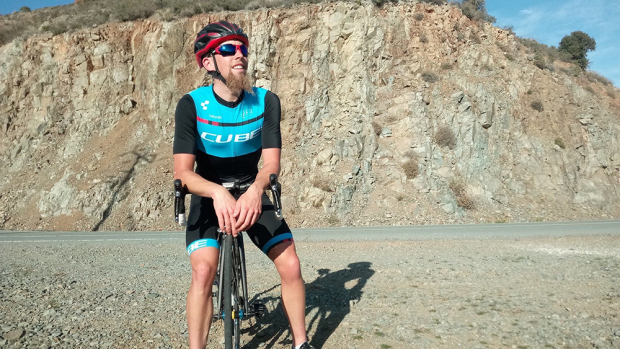
ST: How much cheating in general do you believe there is in sport, and for this conversation especially in triathlon?
Malte: One can only hope that there isn't. But as soon as money, pride and prestige are involved, it seems to be part of human nature to cheat and do everything for one's own gain. So it would be naive to believe that there isn't.
ST: So what is next for you?
Malte: I am currently looking for a job to start a career in engineering. Concerning the sport, I'll continue riding my bike and swimming. I got my eyes set on some ultra endurance stuff like 24-hour racing or the transcontinental. I'd love to do some of that stuff, if the future makes it possible.
ST: Are you much of a bike geek? And what kind of bike do you ride mostly these days?
Malte: Not really. For me, a bike is a tool. If it is nice to look at, all the better – but I don't pamper my bike and certainly don't clean it as often as I should. But I do all the work on my bike myself. Di2 issues, bearing, rebuilding components, wheels – I can do almost everything myself. Mostly I ride my road bike (2017 Cube Litening), sometimes also my MTB – but not all that often as I don't really fancy the risks of mountain biking.
ST: But ice cream?
Malte: Ice cream is just the best! I always loved it. When I started riding a road bike, I found so many new ice cream places, and I tried them all. During summer it is my main fuel source on the bike. Because some ice cold ice cream is just way more enjoyable during those hot summer rides then any [energy] bar or warm carb drink from your bottles!


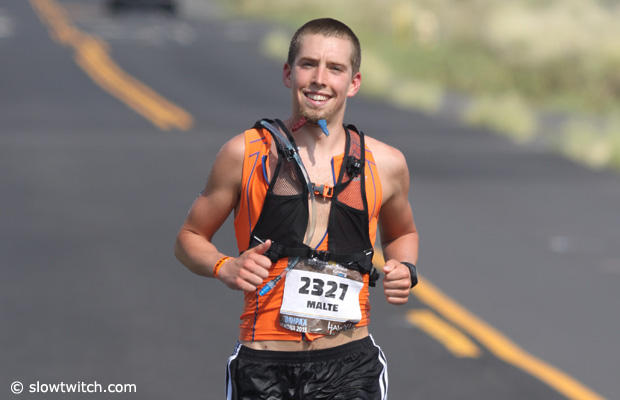
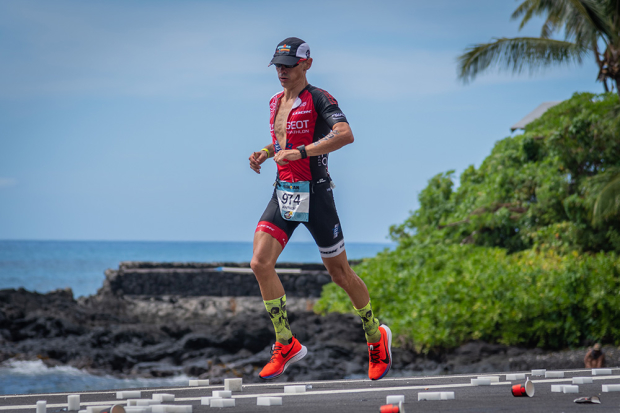
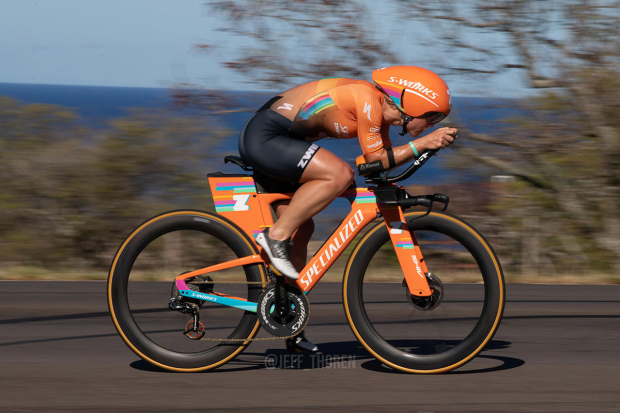
Start the discussion at slowtwitch.northend.network